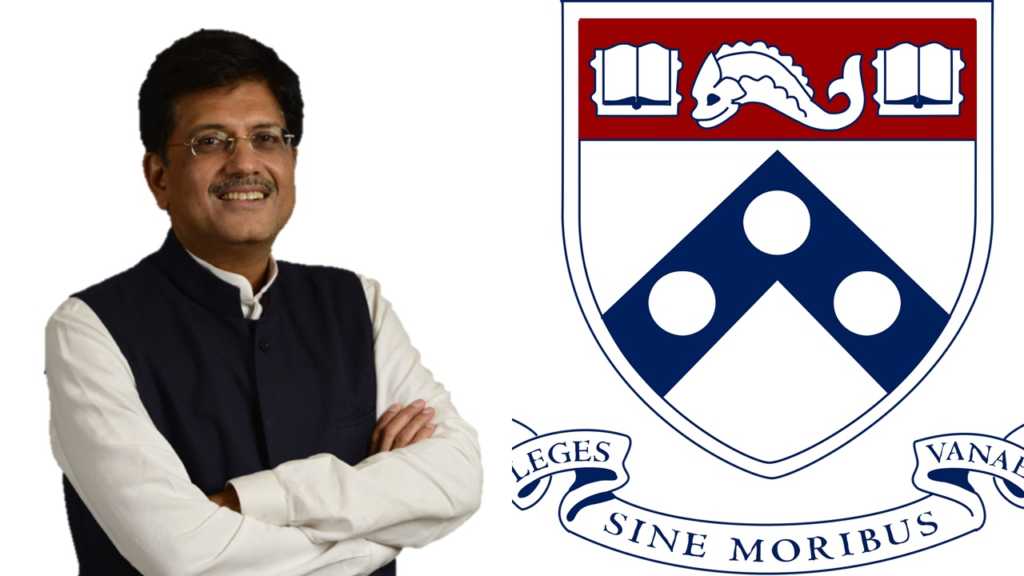Union minister of Railways and Coal, Piyush Goyal is all set to receive the University of Pennsylvania’s top award in energy policy for his leadership in reforming India’s power sector. It has been reported that he is going to receive this award for spearheading the efforts to fast track the electrification in the 18,000 remote villages across India and expanding renewable energy in the country.
The Kleinman Center for Energy Policy at the University Of Pennsylvania School Of Design will award its fourth annual Carnot award on October 19 to the former union minister of power and renewable energy, Piyush Goyal. The Carnot award is the Kleinman Center’s annual recognition of distinguished contributions to energy policy through scholarship or practice. In its press release, the Kleinman Center lauded Goyal’s efforts towards fast-tracking intiatives to electrify 18,000 villages in remote parts of India, “helping bridge the country’s vast energy divide.” The release also lauded the union minister for retiring outdated coal plants while launching an ambitious renewable energy expansion programme. It further stated, “Although India is the world’s fourth top CO2 emitter, the country is currently at 20% renewables and is on solid footing to reach a 40% renewable mix by 2030.” It also highlighted that this is a part of the country’s efforts to meet the Paris Agreement targets.
The founding faculty director of the Kleinman Center Mark Alan Hughes also heaped praise on Piyush Goyal and said that his efforts, “demonstrate what it takes to create a just energy transition — courage amidst complexity. Providing power to the world’s energy poor turns on the lights—and also empowers education, sanitation, and healthcare. It closes the gap between the haves and have nots.” Piyush Goyal is also going to meet students at the university and interact with the people of Indian diaspora during an event in New Jersey and speak on growth and economic reforms in India at Columbia University.
The Carnot award, which is named after French scientist Sadi Carnot who recognised that the power of the steam engine would produce a great revolution in human development, is intended to honour leading revolutions in energy policy to further progress and prosperity.
This award, indeed, corroborates how Piyush Goyal has been instrumental in leading the Indian power sector from the front and bridging the last gap that existed as far as access to power is concerned. It was majorly due to his leadership skills that the government could achieve its objective of electrifying every Indian village well within the deadline period. It was his unwavering enthusiasm and unmatched efficiency that India was able to achieve this uphill task. When the government initiated the challenging process of electrifying all Indian villages, there were a total of 18,452 un-electrified villages in India and during execution, it came to light that another 1275 villages were also in a state of darkness. Electrification of such a high number of villages was no easy task and Piyush Goyal deserves credit for leading the nation to light, quite literally. This was not his only achievement and it was due to his efforts that India became a net exporter of electricity for the first time in its history. As per Central Electricity Authority, during the current year 2016-2017 (April to February 2017), India exported around 5,798 million units to Nepal, Bangladesh, and Myanmar which is 213 million units more than the import of around 5,585 million units from Bhutan.
Unfounded and baseless criticism by the leftist liberals notwithstanding, it is clear that Piyush Goyal’s efforts, efficiency and contribution in the power sector is being recognised not only in India but at the higher echelons, even at a global level. This prize is a matter of pride not only for Piyush Goyal but for the entire nation. It marks the emergence of a new India for which lack of power access to all is fast becoming a thing of the past and a nation which is moving at a humungous pace towards cleaner energy.
